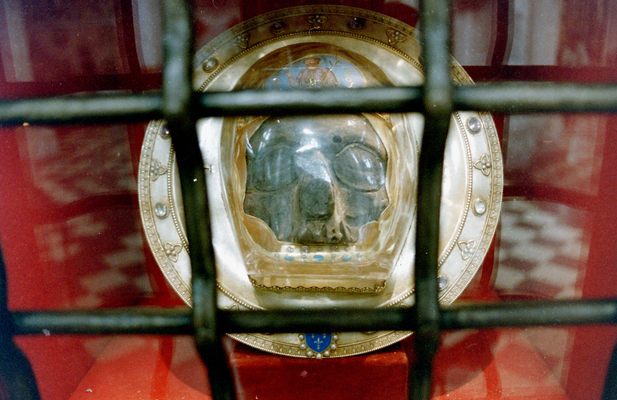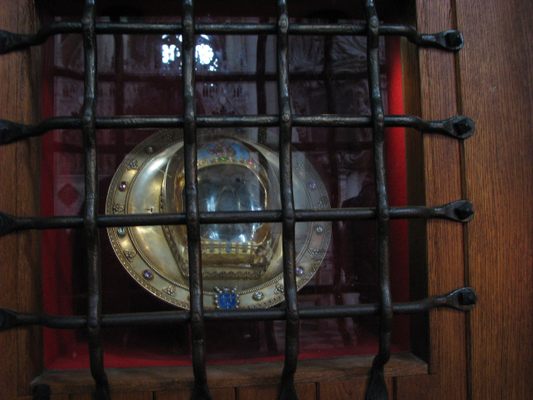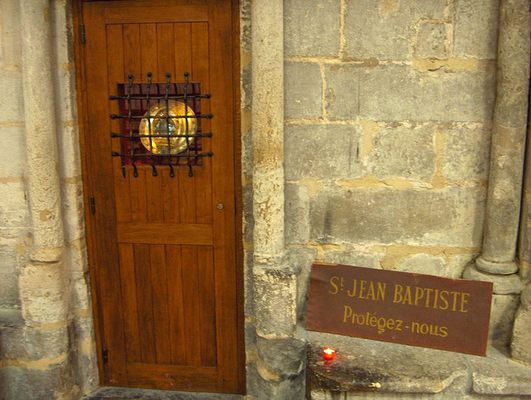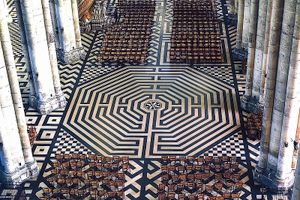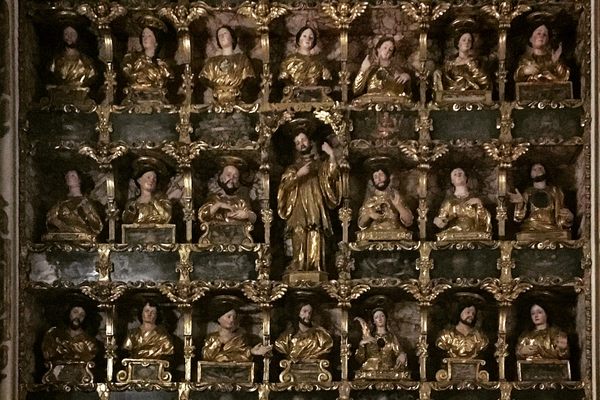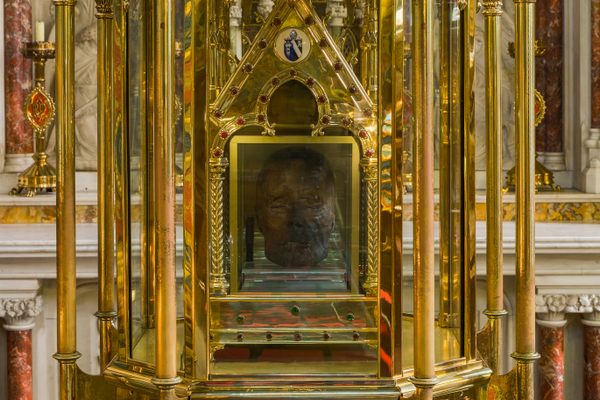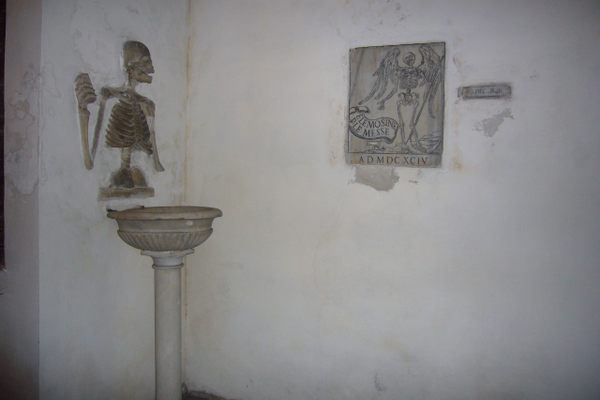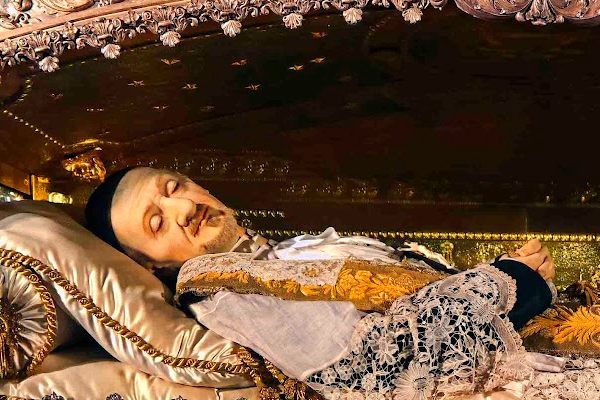About
France's Amiens Cathedral contains a preserved skull (facial bone sans lower jaw) which is supposedly that of famed prophet John the Baptist.
While the grim relic has said to have been lost and found a number of times throughout its centuries of history, the skull found its way to its current home after traveling from the defunct city of Constantinople. During the Fourth Crusade (1202–1204), Wallon de Sarton, a Crusader from French Picardy, discovered in the ruins of a palace in Constantinople, a relic consisting of a half-ball of transparent crystal that contained the facial section of a human head resting on a silver plate.
Greek letters engraved in the plate affirmed that the pate was that of John the Baptist. Wallon de Sarton had to sell the silver plate to pay for his voyage back to France, but he kept the head and in 1206 he gave the relic to the bishop of the town of Amiens. Realizing the significance of the item, the church immediately began construction on the Amiens Cathedral.
The relic was displayed in the Amiens Cathedral until the French Revolution when inventory was made of all Church property and treasure and relics were confiscated. In 1793 representatives of the Convention demanded that the relic be buried in a cemetery, instead the mayor of the town kept the relic in his house.
Some years later, in 1816, the head of St. John the Baptist was returned to the cathedral and in 1876 a new silver plate was added to the relic, restoring it to its historical glory.
Related Tags
Published
August 27, 2013
